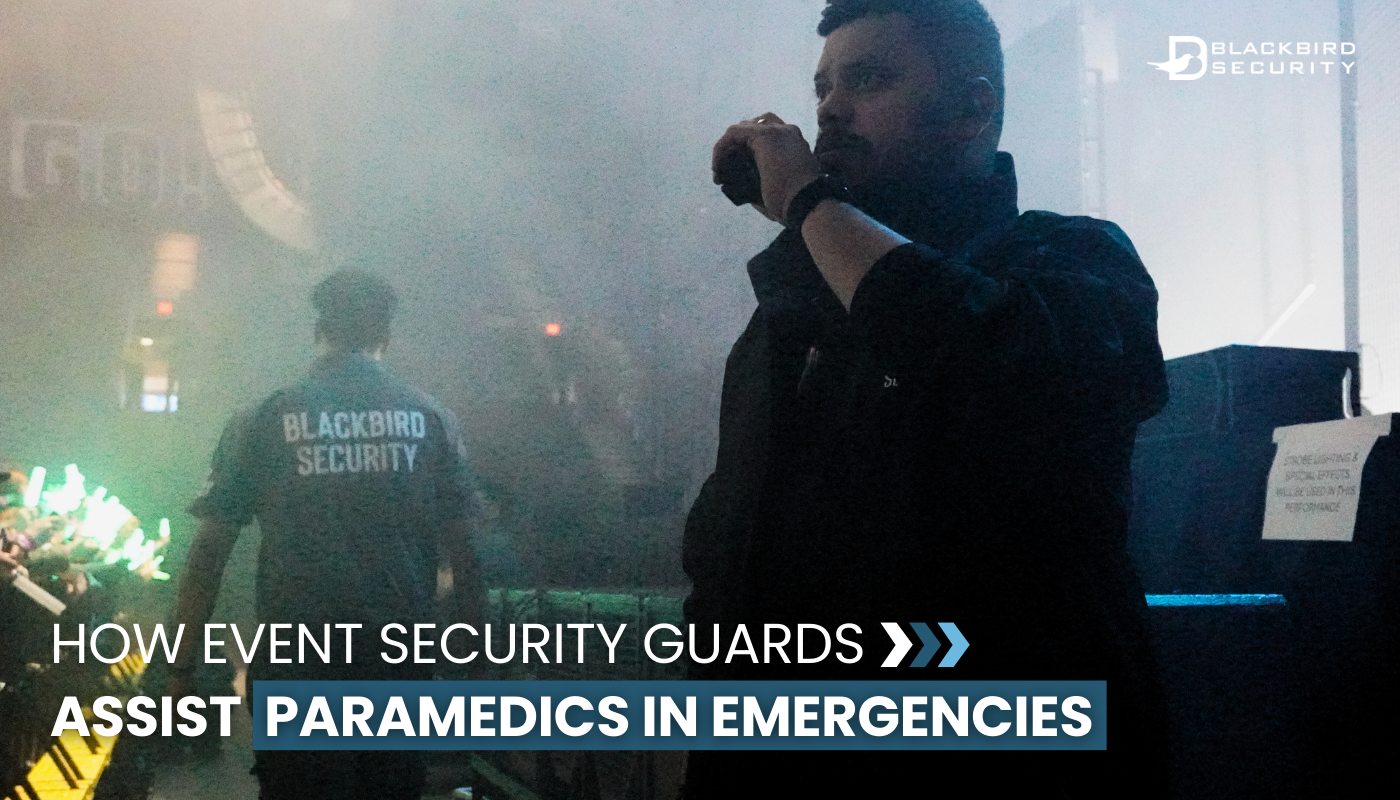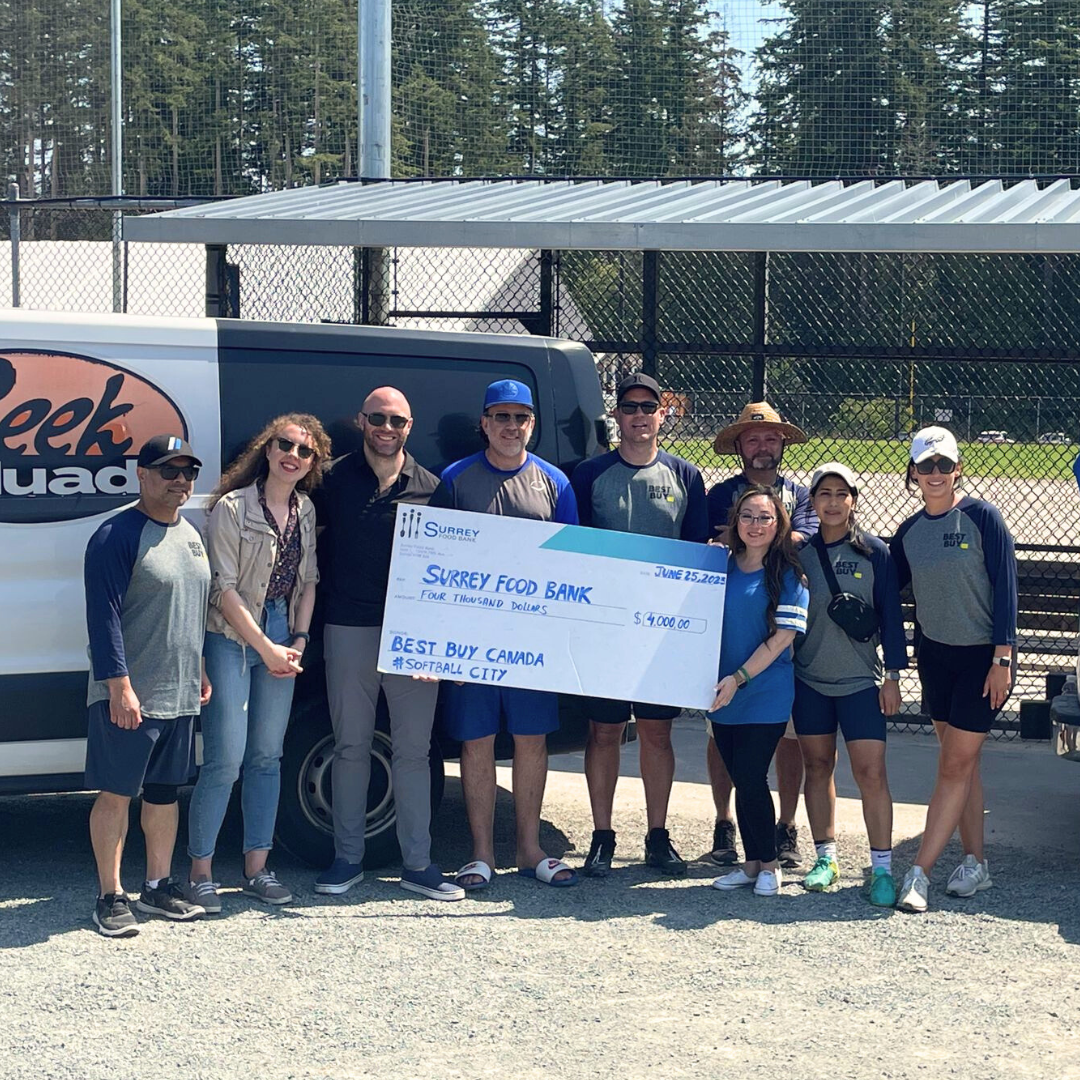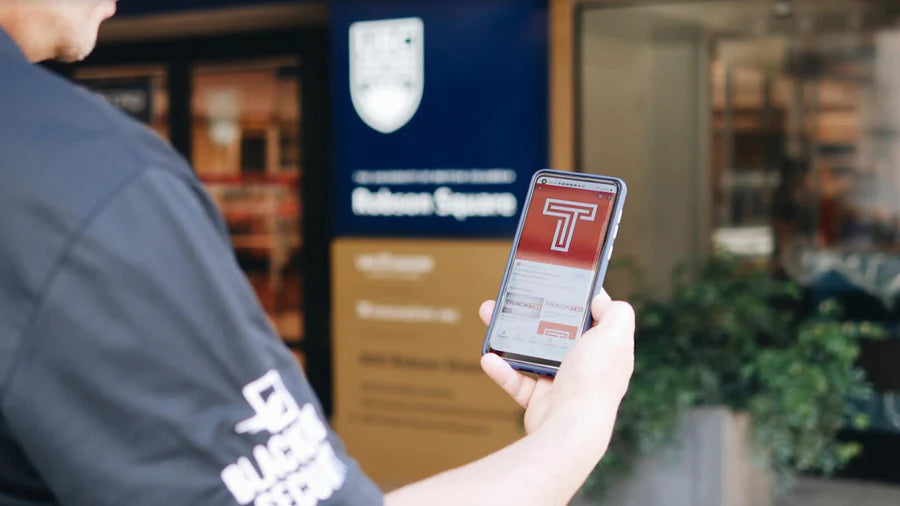How Event Security Guards Assist Paramedics in Emergencies
Medical emergencies can happen any time, anywhere, and for any reason. However, at large events with excited crowds, movement, and in some cases alcohol, medical incidents are more common. Since event security guards are often the first to assist injured attendees, security teams must thoroughly understand emergency response protocols and procedures. Effectively assessing situations, controlling crowds, and assisting paramedics in accessing patients can make a real difference in the outcome of an emergency scenario. In this blog, we’ll discuss the procedures that event security guards follow when assisting paramedics.

When Do Event Security Guards Need to Assist Paramedics?
Event security guards assist paramedics whenever they are called to an event venue. As soon as a medical emergency is identified, whether through crowd monitoring, radio communication with other guards, or a request for help from an attendee, security guards step in. Their goal is to manage the situation and keep both the patient and the surrounding crowds safe until first responders arrive.
What Kind of Medical Emergencies Are Most Common at Events?
At large-scale events like concerts, festivals, and sporting events, the most common medical emergencies typically include:
-
Heat exhaustion
-
Dehydration
-
Fainting
-
Allergic reactions
-
Cuts
-
Sprains
-
Falls
-
Panic attacks
Additionally, security guards may encounter more serious emergencies, such as attendees experiencing drug or alcohol-related medical issues, seizures, or cardiac events. These emergencies each present differently, and guards must be alert for signs of distress within crowds.

Coordinating with Paramedics: Event Security Guard Procedures
When a medical emergency happens, event security guards follow a set of procedures designed to keep everyone safe and ensure paramedics can do their jobs with minimal interference. While different events and venues may have varying protocols when medical emergencies happen, here’s an overview of the typical process:
1. Assess the Emergency
Security guards quickly evaluate the severity of the situation, checking whether the individual is conscious, breathing, and in need of immediate first aid. They use this initial assessment to determine the appropriate response going forward.
2. Contact First Responders
If necessary, guards dial 911. They clearly communicate the nature of the emergency, the address and exact location, and any relevant safety concerns.
3. Communicate with Guards and Staff
The attending security guard uses a radio to communicate with other security guards and event staff, requesting assistance as needed. Having multiple guards at the scene is necessary for the safety of the patient and other attendees.
4. Administer First Aid
To stabilize the patient until paramedics arrive, security guards may administer first aid or CPR if they have the training to do so safely. This early intervention can save lives, and having a security team trained in first aid is one of the benefits of partnering with a reputable event security company.
5. Conduct Crowd Control
Large crowds can slow down emergency response. Guards keep bystanders at a safe distance to provide space for the patient and paramedics when they arrive.
6. Secure the Scene
Security guards must ensure the area is free from hazards and disruptions. This can include removing potentially dangerous objects and directing foot traffic away from the scene.
7. Support with Transport
Once paramedics arrive at the venue, security guards meet them at the entrance and guide them to the patient. At large or outdoor venues, it can be challenging for paramedics to navigate event spaces without assistance from security guards or staff.
Event security guards may also support paramedics in carrying emergency equipment or escorting medical teams out of the venue as they transport the patient to an ambulance.
9. Incident Documentation
After the incident, guards complete a report detailing the nature of the emergency, who was involved, when it happened, and actions taken. Detailed reports help to inform internal safety reviews and future event safety measures.
The Blackbird Difference: First Aid Training for Event Security Guards
At Blackbird Security, all of our event security guards receive comprehensive first aid training through our in-house training program, Blackbird Academy, in partnership with St. John’s Ambulance and Lifeguarding Academy. Guards learn how to assess injuries and provide lifesaving care, allowing them to act decisively in emergencies where every second matters.
Blackbird Security training has made a meaningful difference in the safety and well-being of those within the sites they protect. Read our blog, Canadian Security Heroes: Saving Lives In All Industries, to learn more.
In addition to first aid training, our security guards also undergo extensive training in crisis intervention, mental health first aid, and other areas to best help the individuals at sites we protect.

Partner with an Expert in Vancouver Event Security
The right security team can make a difference to event security teams and organizers, who can feel confident knowing their security personnel are equipped to respond to medical emergencies. At Blackbird Security, our team has in-depth experience providing event security in Vancouver, including concerts at the UBC Thunderbird Arena, sporting events in Vancouver, and community events like Latincouver.
Get in touch with us through our contact form to learn how we can help secure your next event and keep your attendees safe.
Learn more about event security response protocols in our previous blog, How Event Security Guards Collaborate With Law Enforcement.







